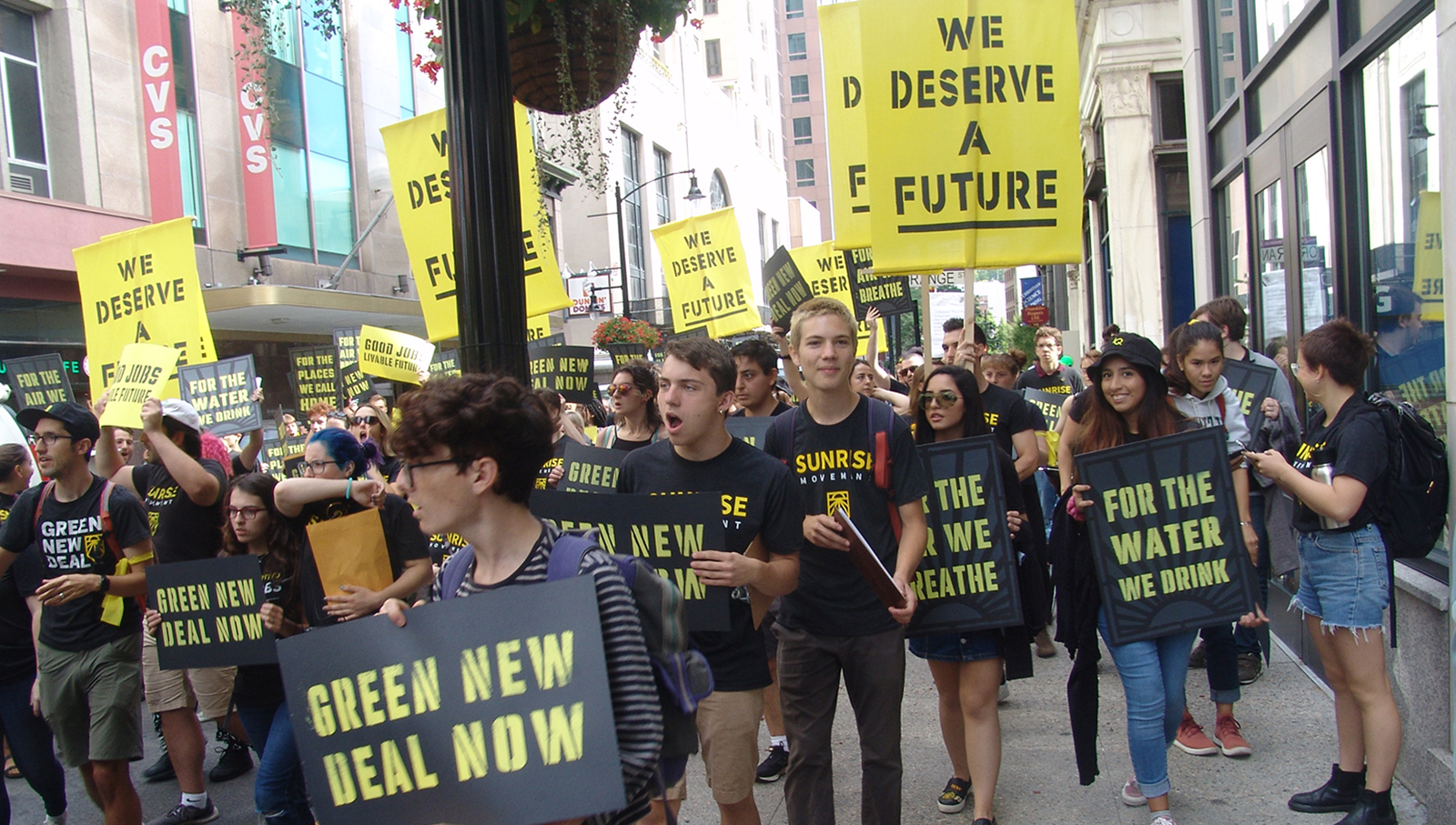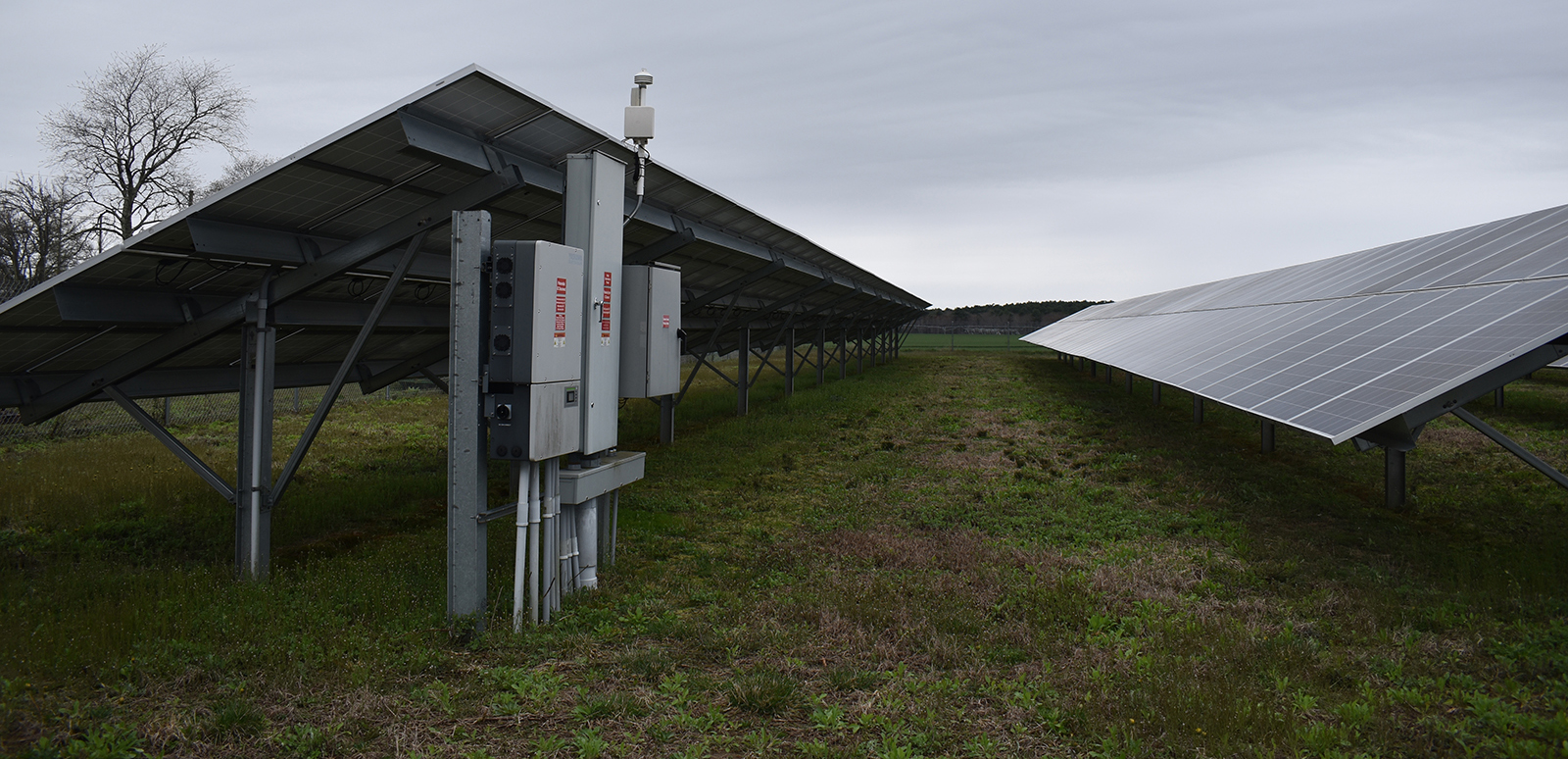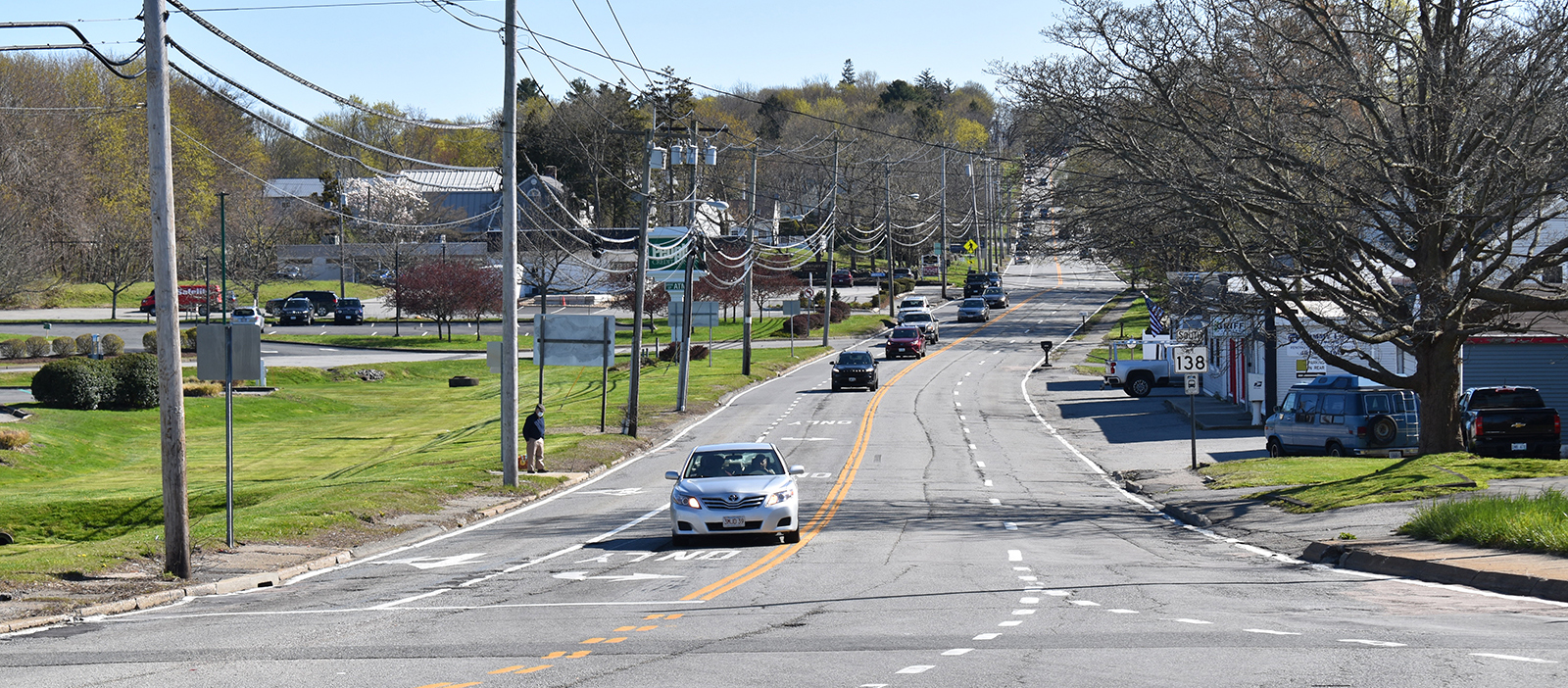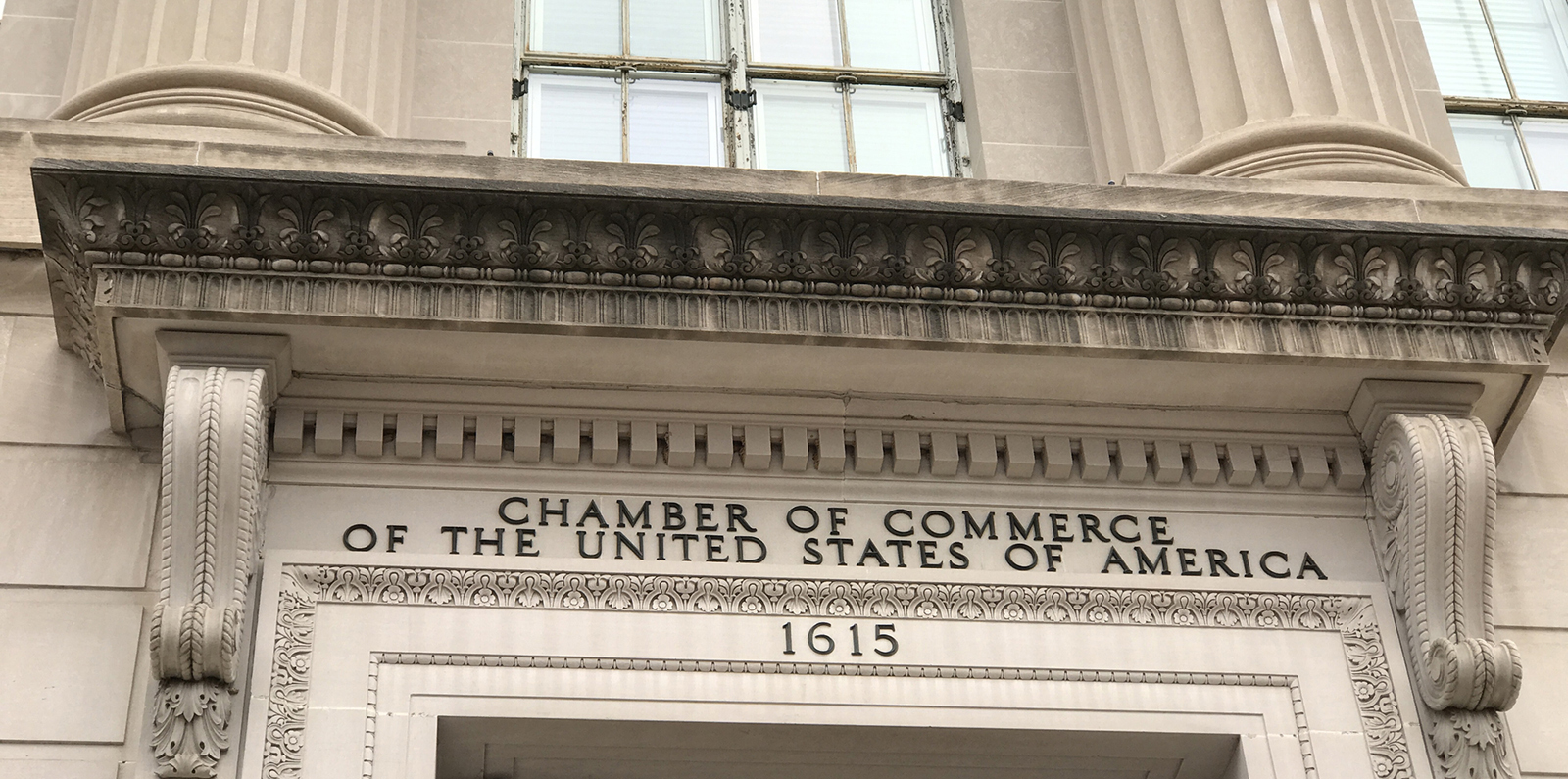Generational Frustrations Grow Over Local and Global Climate Inaction
“It’s just like we’re sleepwalking to annihilation”
January 18, 2024
A few days after Thanksgiving Tom Wojick spent a chilly and windy evening at a climate film festival hosted by a Providence private school. Before the 10 short films — 1 minute to 22 minutes in length — rolled, two students and a teacher spoke passionately about the crisis we face.
Wojick left frustrated.
His frustration had nothing to do with the films, which he said were engaging; the topic they addressed, at least not directly; or the host school. The one-and-a-half-hour event, which was attended by about 40 people, ended without closure, he said. No breakout groups. No Q&A session. No followup. It left Wojick again wondering how the collective we will ever be able to mitigate the climate crisis.
“It was a lost opportunity,” the Cranston resident said. “There was no discussion. No community-building. I left thinking how do we get people to internalize climate change and be more engaged about it. We need to have conversations with each other.”
Wojick was in no way placing that iceberg-sized chunk of responsibility on the shoulders of the private school’s students and staff. It’s a society-wide problem. Community discussion and TV media coverage about this global emergency rarely breaks the surface. People watch a documentary, or a 10-pack of films, about the climate crisis, leave the theater, and return to their lives. Nothing really changes.
“Nobody seems to be willing to dig in and address it because they don’t know what to do,” Wojick said. “It’s not that they’re unwilling; it’s just overwhelming.”
That sense of overwhelmingness is likely why Wojick, who is 76, is routinely asked why, at his age, he cares so much about mitigating the climate crisis. His simple answer is he and his wife have five grandchildren.
I am also frequently asked the same question. My wife and I don’t have children (we do have two young nieces we adore), but the answer to that ignorant question — often asked by good people who just don’t understand or respect the crisis we put ourselves in — shouldn’t revolve around how many kids, grandkids, nieces, and nephews your brood has produced.
Tom, like Joanna and myself, doesn’t want to be remembered as the people who took a flamethrower to the world we inherited. Our species’ shortsighted wants, greediness, and savageness has already caused immense suffering, to each other and the world we share with so much other life — although the amount has and is being diminished by our actions.
We still have time to address the biggest challenge we face, but time is not on our side. That’s why Wojick at age 76 wants to do his part and more in addressing the climate crisis. The Photo of the Week we run in our Tuesday morning newsletter is often a local wildlife picture taken by Wojick. He said it’s just one small way he can help foster a stronger appreciation for the natural world.
To effectively address the climate crisis, Wojick said “we have to be willing to work together,” “we need to stop working in silos and duplicating efforts,” “we need to bring as many stakeholders — friends, family, neighbors — together to help solve the problem,” and “we need education, engagement, and action.”
“It makes me angry when people ask me why I care. Our lack of response makes me angry. This trend of narcissism that’s been making its way through society has made it all about me, the individual. The frustration and anger can burn you out.”
— Tom Wojick
Exasperation about climate inaction by government at all levels isn’t limited to young people. Plenty of older people, like Wojick and myself, are worried about a future that is being devoured by the relentless burning of fossil fuels.
Nicholas Boke, 77, recently told ecoRI News he’s somewhat of an optimist, “so I’ve been, like most almost-optimists, hopeful that the worst of climate change wouldn’t become as bad as it seemed likely to become. After all, green energy seemed to be catching on, and maybe — just maybe — we’d pull it off and all those nice little neighborhood kids would have a shot at decent lives.”
The former Providence resident moved to Vermont several years ago, in part, because Rhode Island wasn’t doing enough to address the climate crisis. He and his wife have one adult daughter.
Then, at the end of last year, news began to trickle out of the fossil fuel-rich United Arab Emirates (UAE), where the United Nations’ annual climate talks were being held. Boke’s limited optimism began to fade.
“News about all the meetings being set up with fossil fuel industry representatives, then news that the president of the event, the UAE’s minister of energy, had insisted in public that climate science didn’t support eliminating fossil fuels,” Boke wrote in his email to ecoRI News. “How does one deal with a situation that reminds one of the lies promulgated by the cigarette industry throughout all those decades, all those deaths? How does one deal with the fact that so many greedy wealthy people are willing to risk yet more lives?”
Bristol resident George Voutes, who is married with two adult daughters, is also concerned about Rhode Island and the world’s lackadaisical response to the climate emergency.
“It sucks the life out of anybody who’s paying attention,” he said. “It bothers me, this unfolding environmental disaster. The rapid degradation of the natural world is the absolute issue of the time, and it’s happening at light speed.”
The 82nd Airborne Division Army veteran noted it’s “extremely necessary to take rapid action.” But Voutes, 60, recently shared his reasons for why more and faster actions to the burgeoning climate catastrophe aren’t happening:
Lack of “understanding” in plain language — not scientific — by the general population.
Lack of personal “context” to what climate change means to the average person. People fail to realize how increasing wildfires, flooding and sea level rise, droughts, and loss of seasons will impact their favorite habitats and non-human species.
Lack of personal “connection” to someone or a group that I can relate to or believe in that climate change is real and we need to stop polluting now.
Voutes and his small nuclear family began making changes over the years as the crisis came into crystal-clear focus. They started consuming smarter, reducing food waste, composting, leaving leaves to fertilize their yard, and working to reduce their carbon footprint. He said change starts with each of us.
“The climate is collapsing, and if we keep consuming like this there won’t be much left for future generations,” he said. “But I think it’s so ingrained in our culture that there is this endless abundance of stuff.”
In a follow-up email to ecoRI News, Voutes wrote: “I care immensely for the natural world and future generations. It’s what drives me in raising awareness (and raising hell when needed) about the seriousness of our warming planet. We have a huge communications problem with getting the masses to understand the climate calamity at hand.”
Frustration is growing locally and worldwide about the lack of collective urgency to address this earthly problem.

For the past half-dozen years, Rhode Island high school and college students, largely under the umbrella of the Sunrise Movement, have become increasingly more organized and vocal, pressuring politicians to stop accepting donations from fossil fuel companies and for the state’s colleges and universities to divest.
On Sept. 20, 2019, about 1,000 local activists, mostly students, marched and protested in Providence during the Global Climate Strike. Speakers advocated for spreading climate activism through protests and pressuring politicians to endorse climate crisis legislation.
One of the speakers, China Duff, then a La Salle Academy senior, told the crowd at Burnside Park that, “Here in the Ocean State we are going to see climate change even sooner than expected as we are already above the warming threshold determined by climate scientists. Because of this we need our elected officials more than ever to take action today. We can’t wait any longer.”
In November 2022, Brown University students tired of broken promises traveled to the U.S. Capitol to protest climate inaction. Last September, at the March to End Fossil Fuels, among the tens of thousands of environmental activists gathered in New York City were dozens from Rhode Island, spanning generations.
One of the Ocean State participants, David Brunetti, 62, told my colleague Colleen Cronin that, “You hope something actually works out because we are running out of time.”
A 2021 10-nation survey of 10,000 young adults (aged 16-25 years) found that 58% feel a sense of betrayal when thinking about their governments’ responses to climate change.
A study published in March 2021, about six months before the survey was taken, opens with this sentence: “Climate change is one of the greatest contemporary threats to human and planetary health.”
Research documents the experiences of depression and anxiety evoked by the climate crisis, but little attention has been given to frustration and anger, according to the study.
There’s plenty of both, and the March study from three years ago said that can be a good thing.
“Our findings implicate anger as a key adaptive emotional driver of engagement with the climate crisis, and prompt warnings about the mental health of populations increasingly worried and miserable about climate change,” the study’s authors wrote.
But we can’t stay angry forever. It’s just a coping mechanism. The climate crisis demands bold solutions. It’s too late for baby steps — net-zero emission goals set 10-plus years into the future and cramming highways with electric vehicles. Mitigating the climate crisis now requires Olympic leaps — modernizing power grids to handle the influx of renewable energy and incentivizing the responsible siting of said energy; funding better public transit; and, of course, drastically reducing the amount of fossil fuel we burn, by, among many other steps, encouraging a transition, like Massachusetts has, to using electricity for heating and other functions methane currently serves and by banning the sale and use of heavily polluting machinery such as gasoline-powered leaf blowers.
“It’s just like we’re sleepwalking to annihilation,” Voutes said. “It’s kind of up to those who are aware of what’s going on to keep rattling the sabers and keep people thinking … because what we’re talking about is affecting each and every town, and our livelihoods, and our futures. It’s not something that’s happening in a different part of the country or the world. It’s happening on every single street, block, cul de sac, and area of our beautiful state.”
Note: I begin the new year writing about this climate emergency because if we don’t radically address the situation now nothing else really matters. Also, I’m 56.
Frank Carini can be reached at [email protected]. His opinions don’t reflect those of ecoRI News.




These days while I help on climate work, I focus on the Climate Justice Economy. This is the only real path forward economically if we want prosperous communities in the future. We have to totally switch to clean power, and focus economic development on community supported projects in low income neighborhoods and POC neighborhoods. These days the focus is on giving money to the rich with the other stuff as a sideshow. We need to make the complete focus of economic development on climate and economic development in low income communities. nothing else will work. And we need to raise taxes on the rich. If you are interested in helping fully develop the climate Justice economy, get in touch I am pretty easy to find in RI.
I feel the passion about this issue. I’m a senior and pay attention to what’s happening in this world. I worry about my son and what he’s going to see. But I also know politics , big oil and the money involved. There is no giving up on burning fossil fuels here, or any where else in this world, before it’s too late.
Frank missed an opportunity to feature what these old folks (I am one – 76 years old) CAN do and to interview them. My retirement is meaningful, filled with companionship working with others doing meaningful work at both state and federal levels to slow climate change. I volunteer for Citizens Climate Lobby. https://citizensclimatelobby.org/ We have MANY older members as well as youth – in fact it is a wonderful partnering. We are non-partisan! We get to meet and lobby in person or via zoom with SenatorWhitehouse, Senator Reed, and Reps Magaziner and Amo (yes just last week we met Gabe Amo). We work with other CCL volunteers across trhe country strategizing, learning and educating about how democracy can work to replace fossil fuels with renewable energy. I urge Fran to contact some of our older members and interview them!
good column but I think misses 2 different kind of points:
one is that though it is convenient to blame greedy fossil fuel companies and unresponsive politicians, they are both responding to demand from users and voters. The problem with them, and with individual consumers, is summed up by the phrase “tragedy of the commons” where most reason – if I agree to any inconvenience (e.g. walk or bike instead of drive, eat less meat that I like, be warm rather than crank up the AC, live in more crowded neighborhoods…) I lose 100% of that benefit to me but it hardly matters for the global climate. Same for any additional expense (e.g. paying more for “green” energy or “organic” products, raising the gas tax to encourage conservation…) I pay 100% of the additional cost but the benefit to the globe is so small. Of course almost everyone else reasoning the same way leads to the current crisis.
2 we are still adding 70 to 80 million more humans to the globe every year, all wanting resources, energy, habitat… this is unsustainable, but too few are willing to address that e.g. by ensuring education of girls and access to birth control for every woman who wants that
We should actually be getting rid of highways rather than “cramming highways with electric vehicles”. We should be “banning the sale and use of heavily polluting machinery such as” leaf blowers, lawnmowers or backhoes whether or not they are gasoline-powered or electric-powered.
Ban cruise ships.
Along with 75+ organisations, our demands are simple:
Ban private jets
Ban frequent flyer programs
Tax frequent flying
https://stay-grounded.org
Even when one tries to move to clean energy the road is full of road blocks. For example I want to change from gas appliances to electric. I heard there were rebates/credits from the Inflation Reduction Act administered by the state to do this. After looking several times at the state energy website, I still can’t figure out what assistance is available, if any. I will probably convert regardless, but we should be making climate friendly change easier, not harder. This is no way to encourage change.
Thank you Frank for your tireless efforts to raise awareness and sound the alarm on the climate emergency.
You are a treasure to our state and will be remembered always for your climate courage.
We can and will succeed in slowing down the heating of the planet. The economics of clean renewable energy are compelling today and will rapidly increase further as more of it comes online. So many good jobs are being created and will also rise as our homes, business, schools and every facet of society transitions to clean energy.
There is a lot to be concerned about for sure. There is also a lot more to be encouraged about. We just need to start listening to one another, find common ground, and get on with transitioning over to clean energy. We need to do this quickly. There is a “timed test” humanity is taking right now and the clock is ticking loudly.
“Bristol resident George Voutes …is also concerned about Rhode Island and the world’s lackadaisical response to the climate emergency. ‘The rapid degradation of the natural world is the absolute issue of the time, and it’s happening at light speed…. We have a huge communications problem with getting the masses to understand the climate calamity at hand.”
Of course, the masses are having trouble understanding the crises of climate change and biodiversity loss because there are so many mixed messages from government, especially from the agencies and university that promote the continued use of natural resources. Not fossil fuels directly, but the wood and wildlife resources, the management of which relies on fossil fuels for their extraction and use.
In the eyes of resource managers, it’s not OK to cut down forests to build solar farms, but it is OK to cut down forests to supply out-of-state wood pellet manufacturers, or create unnatural habitat for game wildlife. Last week, ecoRI reprinted a story on URI efforts to manage for the American Woodcock. In this story we learn that clearcutting forests is the requisite management action. “According to Buffum, a research associate in URI’s Department of Natural Resources Science, the biggest challenge for communicating with landowners is that they aren’t easily convinced that clear-cutting is beneficial for wildlife. “A clear-cut is ugly for a couple of years … it looks like a bomb went off,” Buffum said.”
Is this how we preserve natural systems? Is this how we should be treating the forests we all are depending on to mitigate CO2 emissions? Just so some hunter can get his daily bag limit of woodcock?
And why does URI continue to support the turfgrass industry? The production of this particularly useless product relies on considerable fossil fuel expenditures in machinery use, fertilizer and pesticide production, and transportation of the finished product; as well as the continued use of fossil fuels to maintain the resulting lawns at Mac-mansions and office parks.
These are some of the things we need to learn to live without to seriously address the climate and biodiversity crises, but when the trusted “scientists” at DEM and URI claim that it’s all OK, what is the public supposed to think?
It is quite clear that the resource managers at our government agencies and university still do not understand the gravity of the climate and biodiversity crises. It is time for the public, young and old, to question the decisions made by government, to demand the truth, and reduce our needless destruction of natural systems.